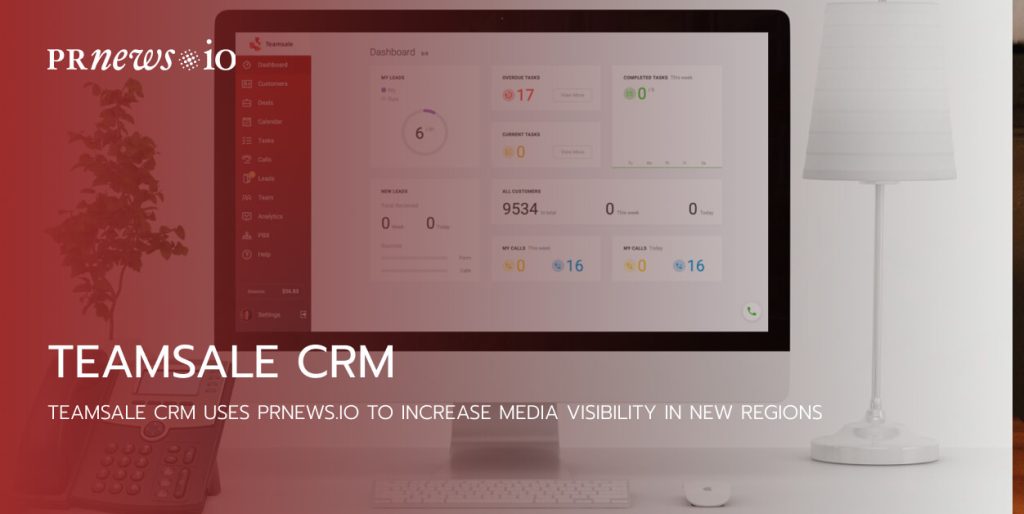With the travel industry becoming increasingly competitive, travel agencies need to have a solid online presence. SEO is crucial in helping you stand out and connect with potential customers actively searching for travel services. By implementing the correct SEO for travel agencies strategies, you can improve your website’s visibility on search engine results pages, increase organic traffic, and drive more bookings. This comprehensive guide covers everything from keyword research and on-page optimization to link building and content marketing. We’ll also share industry-specific tips and tricks to help your travel agency thrive in the digital landscape.
Value of SEO for travel agencies
With the travel industry becoming increasingly competitive, travel agencies need to have a strong online presence. Search Engine Optimization (SEO) is crucial in helping you stand out from the crowd and connect with potential customers actively searching for travel services.
SEO allows you to optimize your website so search engines can easily find, index, and rank it. By implementing the correct SEO for travel agencies strategies, you can improve your website’s visibility on search engine results pages, increase organic traffic, and drive more bookings.
But why is SEO specifically important for travel agencies? The answer lies in the way people plan and book their trips. Today, travelers heavily rely on search engines to find information, compare prices, and make reservations. According to studies, most travel bookings start with an online search. If your travel agency is not visible on search engine results pages, you’re missing out on many potential customers.

One of the critical foundations of effective SEO for travel agencies is keyword research. Understanding the travel-related keywords that potential customers use when searching for travel services is essential for optimizing your website and driving targeted traffic.
Start by brainstorming relevant keywords and phrases related to your travel agency’s offerings. These could include destination names, types of trips (such as adventure travel, luxury vacations, or family-friendly holidays), and specific services you offer (such as hotel bookings, tour packages, or cruise vacations).
Use keyword research tools like Google Keyword Planner, SEMrush, or Ahrefs to expand your keyword list. These tools will provide valuable insights into each term’s search volume, competition, and related keywords. Focus on long-tail keywords that are more specific and have less competition. For example, instead of targeting “vacation packages,” consider targeting “all-inclusive vacation packages to Hawaii.”
Once you have a list of targeted keywords, strategically incorporate them into your website’s content, including page titles, meta descriptions, headings, and body text. However, it’s crucial to maintain a natural flow of language and avoid keyword stuffing, which can negatively impact your search engine rankings.
On-page optimization for travel agency websites
On-page optimization refers to optimizing the elements on your website to improve its visibility and relevance to search engines. It involves optimizing your web pages’ content and technical aspects.
Start by ensuring that your website has a clear and organized structure. Create separate pages for different types of trips or destinations, and make sure each page has a unique title and meta description that includes relevant keywords.
As for content optimization, focus on creating high-quality, engaging, and informative content relevant to your target audience. Write detailed descriptions of your travel services, including unique selling points, itineraries, and testimonials. Incorporate relevant keywords throughout the content to increase its relevance to search engines.
In addition to content optimization, technical aspects such as page load speed, mobile-friendliness, and proper use of heading tags (H1, H2, etc.) also play a crucial role in on-page optimization. Ensure your website is fast and responsive, as slow-loading pages can negatively impact user experience and search engine rankings.

Off-page optimization for travel agency websites
Off-page optimization refers to the actions taken outside of your website to improve its visibility and reputation on the internet. The most important aspect of off-page optimization is building high-quality backlinks from reputable and relevant websites.
Backlinks are essentially other websites linking to your website. Search engines consider backlinks as votes of confidence, indicating that your website is trustworthy and provides valuable content. The more high-quality backlinks you have, the higher your website will likely rank in search engine results.
To build backlinks for your travel agency website, create compelling and shareable content that other websites want to link to. This could include informative blog posts, destination guides, or travel tips. Contact other travel-related websites, bloggers, and influencers in your niche and ask them to link to your content.
Another effective strategy for building backlinks is to submit your travel agency to reputable online directories, such as TripAdvisor, Yelp, or Google My Business. These directories provide valuable backlinks and help potential customers find your travel agency when searching for travel services.
Local SEO for travel agencies
As a travel agency, you likely cater to customers from specific locations. Therefore, optimizing your website for local searches is crucial to attracting customers searching for travel services in your area.
Start by creating a Google My Business listing for your travel agency. This will help your business appear in local search results and Google Maps. Provide accurate and detailed information, including your address, phone number, website URL, and business hours.
In addition to creating a Google My Business listing, optimize your website’s content for local keywords. Include the name of your city, state, or region in your page titles, meta descriptions, and headings. This will help search engines understand the geographic relevance of your website and improve its visibility in local search results.
Encourage your customers to leave reviews on platforms like Google My Business, TripAdvisor, or Yelp. Positive reviews improve your online reputation and contribute to higher rankings in local search results.
Creating high-quality content for travel agency websites
Content marketing is an integral part of any successful SEO strategy. By creating high-quality and valuable content, you can attract more organic traffic, engage your audience, and establish your travel agency as an authoritative source in the industry.
When it comes to content creation, think beyond promotional materials and sales pitches. Instead, focus on providing valuable and informative content that addresses the needs and interests of your target audience. This could include destination guides, travel tips, packing lists, travel stories, or reviews of hotels and attractions.
Incorporate relevant keywords into your content to increase its visibility in search engine results. However, always prioritize the quality and relevance of the content over keyword optimization. Remember, search engines value high-quality content that provides value to users.
In addition to written content, consider incorporating other types of media into your website, such as images, videos, and infographics. Visual content not only enhances the user experience but also increases the shareability and engagement of your content.
UX and SEO for travel agency websites
User experience (UX) is significant in SEO and customer satisfaction. A website that provides a seamless and enjoyable user experience is more likely to rank higher in search engine results and convert visitors into customers.
Start by ensuring that your website is mobile-friendly. With the increasing use of smartphones and tablets for travel planning, having a responsive website is essential. Test your website’s mobile-friendliness using tools like Google’s Mobile-Friendly Test and make necessary optimizations to improve the user experience on mobile devices.
Page load speed is another crucial aspect of user experience and SEO for travel agencies. Slow-loading pages not only frustrate visitors but also negatively impact search engine rankings. Use tools like Google PageSpeed Insights to identify and fix any speed-related issues on your website.
Navigation and site structure are also important for a positive user experience. Ensure your website is easy to navigate and visitors can find the information they want with minimal effort. Use clear headings, menus, and internal links to guide visitors through your website.
Tracking and analyzing SEO performance for travel agencies
Tracking and analyzing key metrics is crucial to measure the effectiveness of your SEO efforts. This will help you identify areas for improvement and make data-driven decisions to optimize your travel agency’s online presence.
Start by setting up Google Analytics on your website. This free tool provides valuable insights into your website’s traffic sources, user behavior, and conversion rates. Monitor metrics such as organic traffic, bounce rate, average session duration, and conversion rates to gauge the performance of your SEO efforts.
In addition to Google Analytics, use Google Search Console to monitor your website’s performance in search engine results. This tool provides data on the keywords that drive traffic to your website, the number of impressions and clicks your website receives, and any indexing or crawling issues.
Regularly analyze your SEO performance and make adjustments to your strategy as needed. Experiment with different keywords, content formats, and optimization techniques to find what works best for your travel agency.
Bottom line
Whether you’re an established travel agency or just starting out, this SEO for travel agencies guide provides you with the knowledge and tools to take your online presence to new heights. By consistently implementing and refining your SEO strategies, you can position your travel agency as a top choice for travelers and drive sustainable growth in the digital landscape.
Is your business in need of a PR makeover?
- Benefit from media coverage assistance.
- Witness a refined branding approach.
- Watch as your recognition soars.





